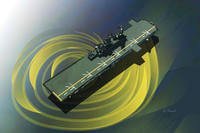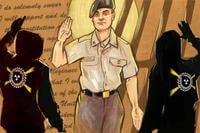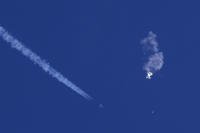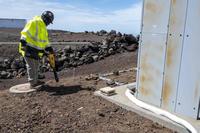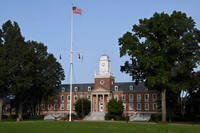One hundred years ago, President Woodrow Wilson went to Arlington National Cemetery on Memorial Day to explain to a still unsure nation why he had signed a declaration of war against Germany weeks before.
Wilson's backers in his successful 1916 re-election campaign used the slogan "he kept us out of war," but it was a different Wilson who appeared before the white crosses of Arlington on May 28, 1917. It was 52 years after Appomattox, and the honored guests at the event were veterans of the Grand Army of the Republic.
In asking Congress to declare war on April 6, 1917, Wilson said, "The world must be made safe for democracy." He cited Germany's declaration of unrestricted submarine warfare. At Arlington, he said the "call for liberty" was ringing out from the trenches in Europe and "the time for action has come."
"There are times when words seem empty and only actions seem great. Such a time has come, and in the providence of God, America will once more have an opportunity to show the world that she was born to serve mankind," Wilson said.
At his "Sagamore Hill" home in Oyster Bay, Long Island, former President Theodore Roosevelt also spoke of war on that same Memorial Day. A crowd of about 5,000 had gathered to hear the thoughts of Roosevelt, Wilson's great antagonist and an early proponent of having the U.S. join the war on the side of Britain and France.
Lifting his hat and pointing to an American flag, Roosevelt said that U.S. troops -- who would come to be known as "doughboys" -- would fight for "the one flag that floats over us, the flag which holds in its folds the future glory of mankind." Lt. Quentin Roosevelt of the 95th Aero Squadron, Teddy Roosevelt's youngest son, was killed over France in 1918.
On that Memorial Day in 1917, the songwriters and music publishers of "Tin Pan Alley," a section of West 28th St. between 5th and 6th Avenues in Manhattan, were already churning out the tunes meant to inspire support for the war and to encourage young men to enlist.
One that turned out to be wildly popular was "America, Here's my Boy," lyrics by Andrew B. Sterling and music by Arthur Lange:
"America, I raised a boy for you. America, you'll find him staunch and true, Place a gun up on his shoulder, He is ready to die or do. America, he is my only one; My hope, my pride and joy, But if I had another, He would march beside his brother; America, here's my boy."
The song was seen as a response to the also popular anti-war lament, "I Didn't Raise My Boy To Be a Soldier," lyrics by Alfred Bryan and music by Al Piantadosi:
"I didn't raise my boy to be a soldier, I brought him up to be my pride and joy. Who dares to place a musket on his shoulder, To shoot some other mother's darling boy? Let nations arbitrate their future troubles, It's time to lay the sword and gun away. There'd be no war today, If mothers all would say, "I didn't raise my boy to be a soldier."
Both songs were played last month for events marking the centennial of the declaration of war at the National World War I Museum and Memorial in Kansas City.
Attending the ceremonies were Helen Patton, whose grandfather George S. Patton led a tank squadron through France in World War I; family members of Gen. John "Black Jack" Pershing, who commanded the American Expeditionary Force in France; descendants of Medal of Honor recipient Sgt. Alvin York; and descendants of the bilingual Signal Corps switchboard operators known as the "Hello Girls."
"Today, we honor a generation of Americans no longer among us physically, but we can all sense their presence a century later," said Charles E. Schmidt, national commander of the American Legion. "Their success in the Great War laid a foundation not only for the American military, but for America itself."
More than 200,000 Americans were killed in the war, part of an estimated 17 million civilians and combatants who died.
The war ended on the "11th hour of the 11th day of the 11th month" of 1918. On Memorial Day 1919, Wilson walked among the graves of American soldiers in Suresnes, France, near Paris.
He said, "It is delightful to learn from those who saw these men fight, and saw them waiting in the trenches for the summons for the fight, that they had a touch of the high spirit of religion. We all believe, I hope, that the spirits of these men are not buried with their bones. Their spirits live!"
-- Richard Sisk can be reached at Richard.Sisk@Military.com.
Related Video:
One-hundred years ago the United States formally entered the “War To End All Wars”. Check out this historic video.

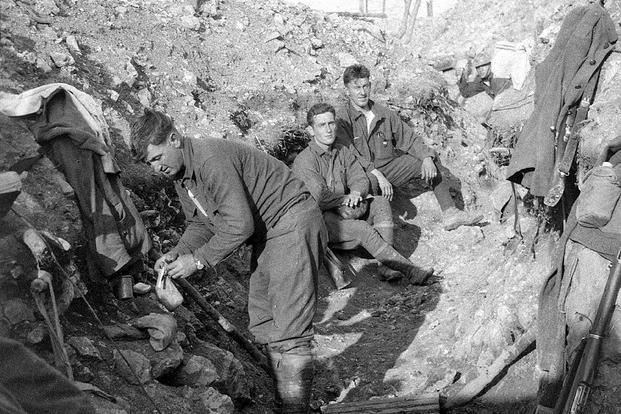

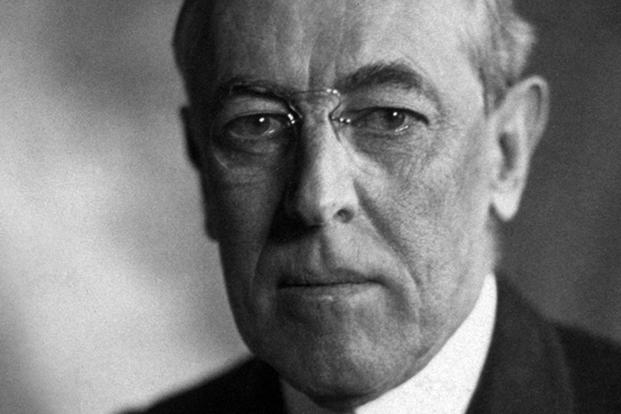








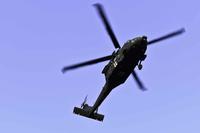
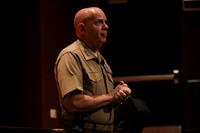

.png.jpg?itok=nzmdKJW7)




